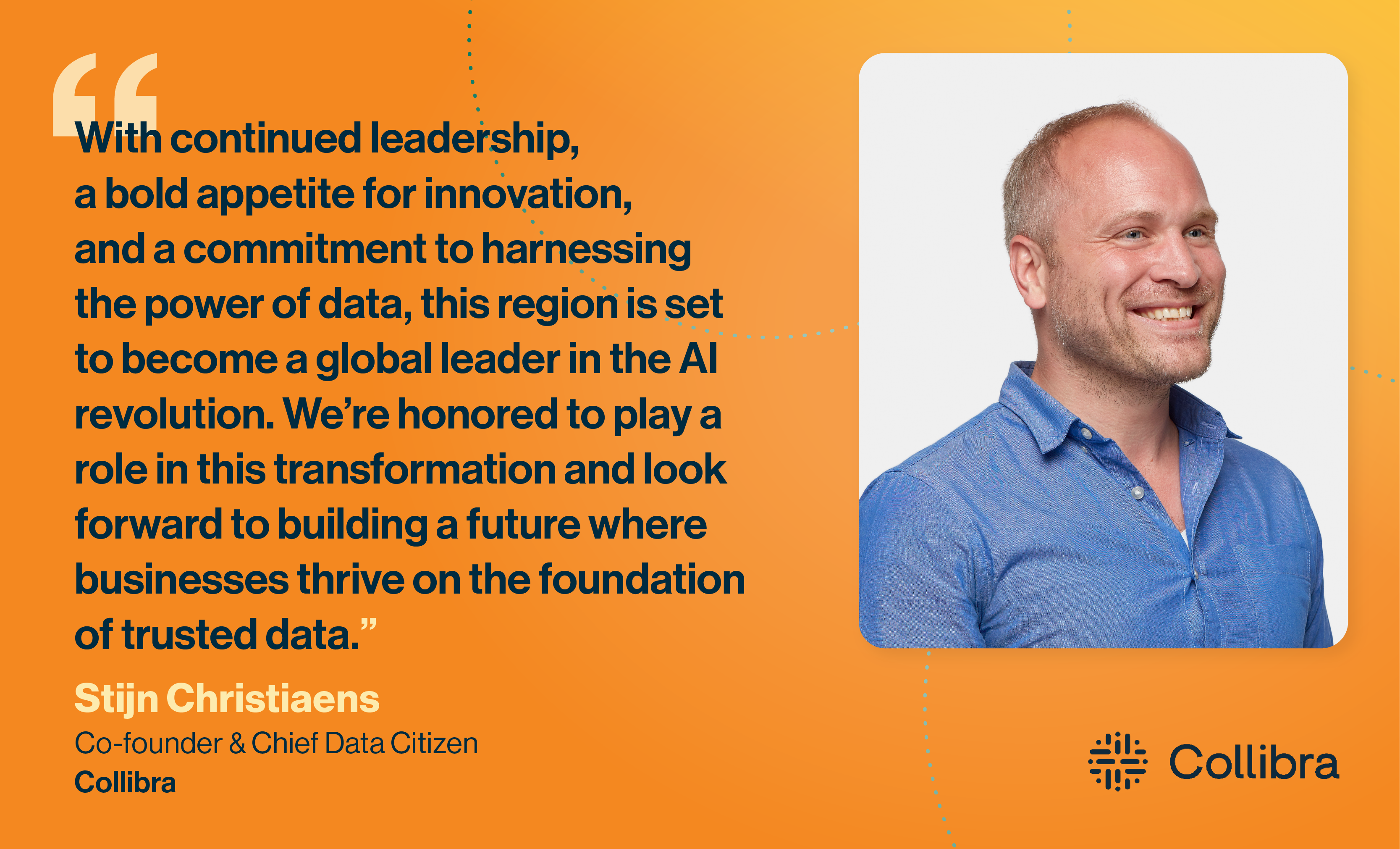AI is everywhere. You’ll find no greater enthusiasm for AI at innovative, fast-paced enterprises. In fact, the majority of enterprises are operationalizing AI. For data leaders, data scientists, and data stewards, the demand for AI applications has created a slew of related challenges. Regulatory compliance, ethical considerations and data privacy have all become critical to the success of enterprise AI.
As organizations increasingly embrace AI, understanding and implementing effective enterprise AI governance is becoming more and more critical to sustaining AI success and mitigating risk.
Today, AI-driven organizations can leverage AI governance to mitigate risk, adhere to legal requirements and protect privacy.
Establishing key principles for AI enterprise governance
Formulating the guiding principles for an organization’s AI governance is a critical first step. These principles should encompass:
- Regulatory compliance
- Ethical considerations
- Transparency
- Privacy policies
They must also provide clear directives for handling errors and breaches. Establishing these principles will lay the foundation for a robust AI governance framework, enabling reliable AI programs and products.
But the most-essential principle of AI data governance is trusted data.
Trusted data: The heart of AI governance
In the era of AI-powered transformation, the importance of trusted data cannot be overstated. It forms the bedrock of successful AI, ensuring innovation while aligning with ethical standards and regulatory requirements.
For forward-looking organizations who want to leverage generative AI technologies, the success (or failure) of these efforts often hinges on the quality of the underlying data that fuels AI models. Flawed data can lead to biased decision-making, inaccurate outputs, and numerous risks affecting security, privacy, legal compliance and organizational reputation.
To address these challenges, it’s imperative for organizations to implement comprehensive AI governance practices, focusing on operationalizing the principle of trusted data to mitigate risks and maximize the potential of AI technologies.
The Collibra AI governance framework offers an accessible guide to jumpstart AI governance programs, aligning them with organizational strategic goals.
Discover more about implementing effective AI governance by exploring the AI governance framework and reading our detailed blog on AI governance principles.
Integrating AI governance into existing processes
For organizations and data professionals, integrating AI governance into existing processes can be challenging and require more than just a surface-level assessment of current practices. Rather, it requires a deep dive into existing data management frameworks, IT infrastructure and operational procedures.
The goal is to align AI applications not only with your organization’s strategic goals but also with the data landscape and your technology stack. The key steps for integration include:
- Gap analysis: Conduct a comprehensive review of current data management and governance practices versus the requirements of effective AI governance. Identify areas where AI governance can complement or enhance existing data governance structures.
- Policy development and revision: Develop or revise policies to include AI governance aspects, such as data quality, model management and ethical AI usage. Policies should address how AI systems are developed, deployed and monitored, ensuring they adhere to legal and ethical standards.
- Workflow alignment: Align AI governance processes with existing workflows. Integrate AI governance tasks into the daily routines of data professionals, ensuring such practices become ingrained in the organizational culture.
- Technology integration: Leverage existing technology infrastructure while adopting new tools that support AI governance. This may include AI monitoring tools, compliance software, or platforms for managing AI lifecycle and model governance.
- Risk management: Integrate AI governance into the organization’s broader risk management framework. Address AI-specific risks, such as bias, transparency, and explainability.
Additionally, organizations should consider establishing an AI governance steering committee or working group. This team can be instrumental in overseeing the integration process, ensuring that all aspects of AI governance are considered and addressed comprehensively. It is crucial to maintain an open line of communication between the AI governance team and all stakeholders, including IT staff, data scientists and business leaders.
Ready to start — or continue — your AI journey? Learn more about Collibra AI Governance.
Ensuring adoption of AI governance practices
To ensure the effective adoption of AI governance practices, a multi-faceted approach centered on education, communication and cultural change is essential. While there are many strategies to drive adoption, there are some tried-and-true approaches that can help your organization:
- Leadership Endorsement: Secure active endorsement from leadership. Leaders should communicate the importance of AI governance and its alignment with the organization’s vision and values.
- Targeted Training Programs: Develop training programs tailored to various roles within the organization. These programs should cover the basics of AI governance, its relevance to different job functions, and specific responsibilities.
- Interactive Learning Tools: Utilize interactive learning tools such as webinars, workshops, and e-learning modules. These tools can help in illustrating complex concepts like model bias, data privacy, and ethical AI in an accessible manner.
- Knowledge Sharing Platforms: Create platforms for sharing knowledge and best practices. Encourage collaboration and discussion on AI governance topics through internal forums, regular meetings or special interest groups.
- Change Management: Employ change management strategies to facilitate the adoption of new governance practices. Address any resistance and foster a culture of openness and adaptability.
It’s vital to recognize your organization’s adoption of AI governance practices is not a one-time event but an ongoing journey. Continuous feedback loops and iterative improvements are essential. Encouraging a culture of curiosity and learning where employees are motivated to ask questions and seek understanding about AI governance will further deepen its integration into the organizational fabric. Celebrating successes — even small milestones in AI governance adoption — can create a positive reinforcement loop, encouraging wider organizational buy-in.
Ultimately, these efforts will lead to a more informed, responsible, AI-savvy organization, fully equipped to harness the benefits of AI while mitigating its risks.
AI success starts with trusted data
There’s no magic to successful AI — today’s enterprises seeking to capitalize on the promise of AI need to know that building an enterprise AI governance roadmap is not just a strategic initiative but a necessity in a world that is demanding responsible, ethical AI.
Your AI roadmap should be comprehensive, covering the integration of AI governance into existing processes, fostering a culture of understanding and adoption, and continuously evolving with the advancements in AI and data science. By meticulously focusing on these areas, your organization can effectively navigate the complexities of AI governance, ensuring alignment with key organizational goals and ethical considerations.
Remember, AI success is deeply rooted in robust data governance that provides trusted data. It’s a journey of continuous improvement and adaptation to new challenges and opportunities in the AI landscape.
Get started with Collibra AI Governance today!




